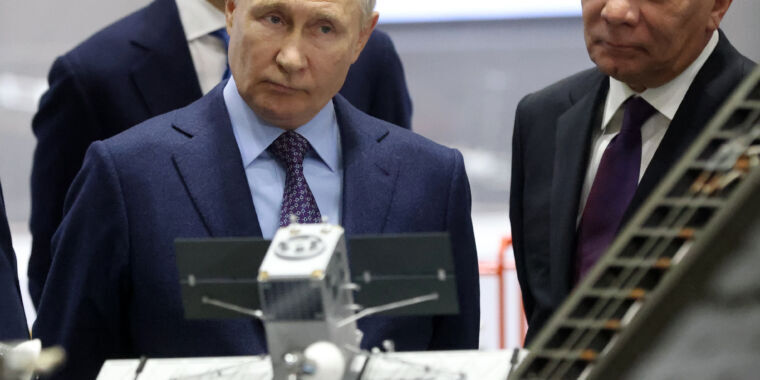Because your mafia oligarch sorry excuse for a state has gutted every industry and your thugs have driven away a large segment of the educated population.
But try making an isolated, paranoid, ruthless tyrant understand that you can’t whistle “Dixie” with a mouthful of blood.
He is sending T-55 tanks to Ukraine and he thinks he can build more satellites?
Get ready for space junk. :(
Doesn’t SpaceX put up more than that in a single launch?
Depends on the size of the satellites. The Transporter-1 Rideshare mission launched 143 satellites. The original v1 Starlink satellites were launched in batches of ~60, but they’ve since switched over to the v2-mini satellites, which are heavier than v1. A single Falcon 9 can launch about 23 v2-minis in reusable mode.
The US definitely has a much higher mass-to-orbit capability than Russia does at the moment.
You can’t really just count numbers, or launches really. There’s a massive difference between a milk-carton sized cubesat costing maybe a few thousand bucks and a 20m long, 20 ton spy sattelite with a 2-meter mirror an a multi-billion dollar pricetag.
Devloping and building a top-of-the-line miltiary spy- or comms sattelite is likely FAR more expensive than launching it. A cubesat costs orders of magnitude more to build than to launch. Most things will be somewhere in between, but you can’t really count numbers.
The Starlink sats that SpaceX has been launching in bulk are pretty impressive. The V2 minis that they’re launching in batches of 20+ are about 4 meters across (before deploying) and 800kg. The throughout numbers are also a big step up from their V1 sats.
As for their Transporter rideshare launches with other companies’ payloads, those have a mix of cubesats and smallsats, usually up to ESPA class, including tugs, military satellites, comms, imaging, etc. These aren’t 1u cubesat college projects, and you shouldn’t diminish the complexity, amount of work, and improvements going on in the US satellite industry these days.
Because Putin is at the top.




